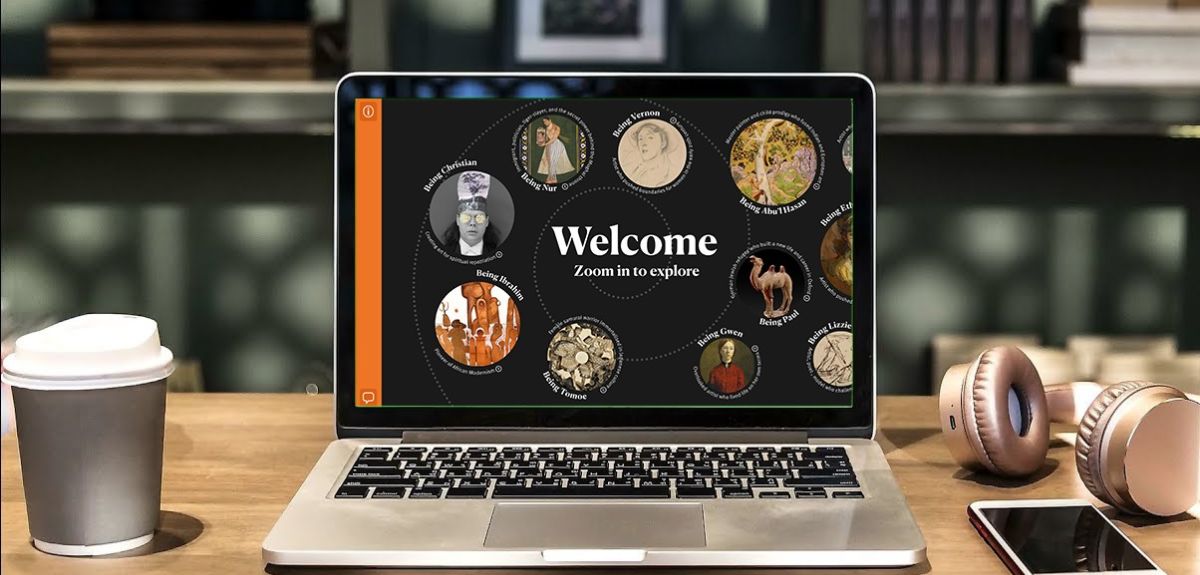
Online arts and culture engagement can have a positive impact on young people’s mental health: Oxford study
Engaging with arts and culture online can improve mental health in young people, according to a ground-breaking study from researchers at the University of Oxford.
Published in the Australian & New Zealand Journal of Psychiatry, the paper is a collaboration between academics from Oxford’s Department of Psychiatry and the Oxford Internet Institute, in partnership with the Ashmolean Museum. In the first study of this kind, they examined the impact of online engagement with arts and culture on depression and anxiety in young people aged 16-24.
Participants were randomly allocated either to a co-produced online cultural experience, Ways of Being, or to the regular Ashmolean website. The former offered access to a diverse range of real-life human stories behind arts and artefacts from the Ashmolean and partner museums. The trial compared the impact on measures relating to depression and anxiety amongst participants.
Lead author Dr Rebecca J Syed Sheriff, Consultant Psychiatrist and Senior Clinical Research Fellow, with the Department of Psychiatry, says, ‘Our analysis shows online arts and culture can positively impact on young people’s mental health. The web experience, co-produced with young people, was more effective at reducing negative affect compared with a typical museum website.’
Our analysis shows online arts and culture can positively impact on young people’s mental health
Dr Rebecca Syed Sheriff
Co-author, Professor Andy Przybylski, Oxford Internet Institute, says, ‘These findings contribute to how we understand the links between online activity and wellbeing suggesting there is potential to reach vulnerable groups through arts and culture, especially young people, many of whom are reluctant to seek help.’
Meanwhile, co-author, Helen Adams, from Oxford’s Gardens, Libraries and Museums, adds, ‘There is rapidly emerging field of research into how participation in arts and culture can contribute to better health and wellbeing. We were delighted to collaborate on this project to take this research into new territory - online. Young people are typically under-represented among arts and culture audiences, so this study provided crucial lessons for how the sector might tailor its approach and content to improve both engagement and mental health outcomes for users, now and in the future”.
These findings...suggest there is potential to reach vulnerable groups through arts and culture, especially young people, many of whom are reluctant to seek help
Professor Andy Przybylski
Dr Sheriff concludes, ‘These results offer an intriguing indication that enriching the online experience with enhanced and diverse content may help to reduce mental health symptoms and/or protect against the evolution of a mental disorder and associated poor outcomes in young people, as well as providing an avenue for self-management. They also suggest online arts and culture has potential as an intervention for young people with mental health needs as an alternative, or addition to conventional mental health services.’
Key findings from the pilot study:
- Researchers found a link between engaging in online arts and culture and mental health, with participants in both trial groups reporting a reduction in psychological distress at the end of the pilot study, despite the pilot study being conducted at a time of increased Covid restrictions.
- In both groups, 24% fewer people reported clinically significant distress between the start of the pilot study and the intervention phase, which was sustained at six weeks
- Researchers found that being able to access more diverse content through the ‘Ways of Being’ platform was beneficial for specific groups including ethnic minorities and young men.
 New study finds that stopping weight-loss drugs is linked to faster regain than ending diet programmes
New study finds that stopping weight-loss drugs is linked to faster regain than ending diet programmes
 Honorary degree recipients for the Chancellor’s ceremony announced
Honorary degree recipients for the Chancellor’s ceremony announced